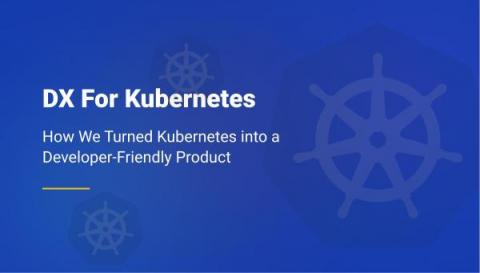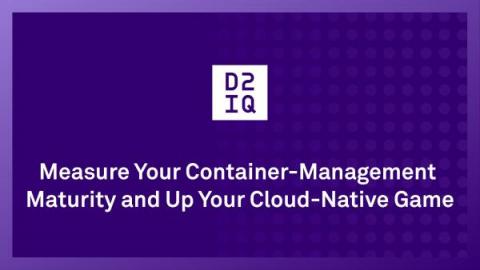Operations | Monitoring | ITSM | DevOps | Cloud
Latest News
5 Tips For Managing A Successful Devops Team
Measure Your Container-Management Maturity and Up Your Cloud-Native Game
D2iQ has made available a new assessment tool that enables you to gauge your container management maturity level. By taking a 1-minute quiz, you can identify where you fit within the five levels of cloud-native container-management maturity–Explorer, Beginner, Intermediate, Advanced, and Master. The maturity model is based on the wisdom of D2iQ Kubernetes experts with more than a decade of experience building and deploying Kubernetes platforms for customers.
Automotive consortiums: Setting new standards for safety and cybersecurity
Canonical strongly believes that the future of automotive will rely on open source to define and run the next generation of vehicles. To drive this transition, state-of-the-art cybersecurity and functional safety are critical. To learn more about the industry’s specific constraints, we are actively involved in several automotive consortiums and are contributing to automotive-related standards.
How to use Azure Blob Storage Reserved Capacity
Azure Blob Storage is a cloud-based object storage service provided by Microsoft Azure. It allows users to store and manage large amounts of unstructured data, such as text, images, videos, and documents. With its high availability, durability, and global reach, Azure Blob Storage provides an ideal solution for businesses and individuals to store and access data securely.
Why Your Business Needs Enterprise Mobility Management
Enterprise Mobility Management (EMM) Explained: Mobility is an unstoppable trend and its benefits are plentiful for businesses in 2022. However, great risks also follow and businesses must do their due diligence, which forces them to establish controls to balance the productivity. Whilst it is necessary to manage devices, there are other issues to consider. It is now vital to include applications and information that is distributed through smartphones and tablets.
Why the Rail Communications Infrastructure Must Be Brought Into the 21st Century
Rail operators rely on their communications network to support an increasing and varied set of both legacy and modernized systems to improve safety, reduce carbon footprint, manage expanding freight and passenger loads, increase customer satisfaction, grow profitability, and comply with regulation.
Cloud Storage Cost Calculator
The rapid advancement of cloud storage technology has revolutionized how businesses and individuals store and access data. With the proliferation of cloud storage services, understanding the cost implications has become increasingly important. This article provides a comprehensive analysis of the key factors that impact cloud storage costs, focusing on three major providers: Google Cloud Platform (GCP), Microsoft Azure, and Amazon Web Services (AWS).
Integrating Komodor with PagerDuty
PagerDuty provides a SaaS-based platform that enables developers, DevOps, IT operations, and business leaders to prevent and resolve incidents that could potentially impact customer experience. This platform allows organizations to proactively manage events that may affect customers across their IT environment, which is crucial for maintaining customer satisfaction, revenue, and brand reputation.











